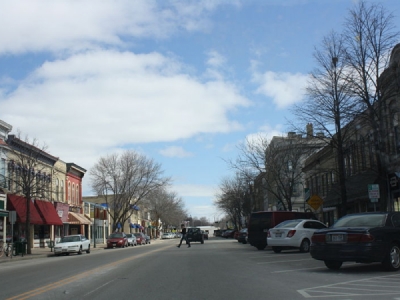
Posted on February 18, 2019
Image Credit: Wikimedia Commons
The Whitewater City Council could decide this spring if and how to draw down Cravath and Trippe lakes so the city can try to boost recreational use on the sediment-choked lakes.
City Parks and Recreation Director Eric Boettcher said the council in spring—perhaps March or April—could decide on a plan that, if approved, would begin a lake drawdown in fall and end with a refill in spring 2021.
Because city staff can control the dam, the drawdown itself would happen at a “minimal cost,” Boettcher said. But if the council also chooses to dredge the lakes, the city has figured out the cost of two options: nearly $782,000 or nearly $1.3 million.
The first dredging option would remove about 47,000 cubic yards of materials, while the second would remove about 81,000 cubic yards.
Currently, the lakes continue to fill with sediment, are aesthetically displeasing and have limited recreational use and decreasing fish habitat, according to a city informational presentation.
Aquatic plant harvesting—which in 2018 cost the city $29,000—is becoming more expensive and less effective.
Boettcher said city officials want to take action because the sediment is making the lakes more shallow. That leads to an overgrowth of plants and makes the lakes less usable.
“With the weeds in there now, we can’t use the lakes that often,” he said. “We have a weed harvest twice a year, and that is not keeping up.”
People who attended a Dec. 12 community meeting gave “very positive feedback” about the lakes project, Boettcher said. He estimated about 100 people attended.
Most asked about the timeline and what the project would do to the lakes. Many favored dredging more material rather than less, he said.
Lab results from sediment sampling in September showed “some minor contaminations” and traces of various metals, such as chromium, copper, lead and zinc, according to the city’s presentation.
If the city decides to dredge the lakes, the work would be done in late 2020 and early 2021.
The rate at which the lakes are drawn down is up to the state Department of Natural Resources and takes into account how fish and other wildlife can go upstream or downstream, Boettcher said.
A typical daily drawdown is about an inch per day, he said. It needs to be done by the end of September or early October to avoid interfering with turtle and frog hibernation, he said.
Those who live on the lakes will be able to apply for DNR permits to restore their shorelines, according to the presentation.
A city timeline says the lakes could be refilled in spring 2021 and restocked with fish in 2022.
Source: gazettextra.com





